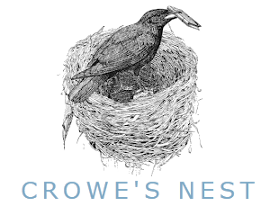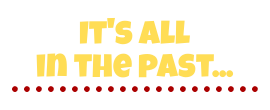As I showered that morning (because that's where ideas come from, you know), I thought about how I would explain theme. And wouldn't you know it: a couple of things finally fell into place in my book! So THANK YOU to everyone whose comments prompted me to think more about them.
And because I know that it can sometimes help just to hear a different voice give their explanation of a concept, here's mine.
Your book is like a salad. The concept and plot and characters and setting-- that's the lettuce and toppings on your salad. The theme is the salad dressing. It's the thing that's there throughout, the one common "flavor" that ties it all together.
You probably have dressing (theme) in your salad (book) already. Maybe it's not the type you want, and maybe not all the toppings are coated, but likely you have some in there even if you didn't think you did.
So how do you find your theme?
Look at your protagonist's character arc. That is a HUGE CLUE right there. In almost all cases, their arc, or the basic thing they learn, in its simplest form, is the theme for your book. But the theme isn't only in the MC's arc, just like the salad dressing shouldn't only be on the raspberries. It's throughout.
Let me explain in an example.
Okay, so some high school kids who are actually mechanical / science prodigies are offered a chance to go to an elite high school whose classes will stretch even them, and give them a chance to reach their intellectual potentials. At the school, after doing some searching, a group of the kids discover that the teachers are actually aliens who are stranded on our planet, and they're using the kids to figure out how to build a new space ship.
Okay. That's your concept. And the start of your basic plot. It is NOT theme at all. Moving on.
The MC is a boy who was the quarterback at his public high school, where he hid his intellect from the whole school, but most of all from all his teammates. It helped him fit in better. At this new school, he finds he can actually have his intelligence out in the open and still fit in. When it's no longer an issue of fitting in, he realizes the reason he kept his massive brainpower a secret was so he wouldn't turn out like his dad, who missed most of MC's childhood because he was in federal prison for hacking into the Justice Department's computer system.
That's part of your character arc. And great clues as to theme.
From here, you could play up the "I'm new here and trying to fit in and find my place" theme. Or "Can I help save the day / the school / the system / the world, without treading into waters that will take me to a bad place?" Or "Trying to figure out who I really am." Or heck, even "Can two people who share a love of math and everything logic go beyond what makes sense long enough to fall in love?"
So once you find your theme, what do you do with it?
Let's take the I'm new here and trying to fit in and find my place theme. That theme needs to be running throughout your character arc. When he's at his old school. When he's at his new school. It needs to cause issue with the emotional / romantic parts. With all his parts in the plot.
But it can't stop with the MC. It needs to be spread throughout. So those aliens: they're stranded here, right? They suddenly have to try to fit in and find their place in a world they find completely foreign, while hiding the fact that they're aliens. And lets say there's a secondary character. A love interest for MC. Maybe she's been the smartest person in her school for so long, that going to a school with super-geniuses puts her in the uncomfortable spot of not being the smartest. Not being the person everyone looks to. And now she's trying to figure out how she fits into this new world. And, if you want to get bigger with it, how this newly-created school fits into the world of schools and where that can take you.
Of course, you could go on and on. The best thing is to weave that theme throughout all the areas that the plot dictates you have included in your book. It doesn't mean you have to add new areas. Just get a little salad dressing on everything you've already got.
Obviously theme can't be heavy handed, or it becomes didactic. You want it to be subtle. When you eat a salad, you don't want the dressing to be overpowering, right? If you hit them over the head with the theme, they will only be able to find one interpretation of it, and it might not be what they want. Leave it subtle, and each reader can interpret that theme in their own way, and each one can come up with a different opinion on what the theme was. It might not be the exact thing you were going for with the theme, but they'll interpret it the exact way they need.
And that's the true beauty of theme.

And the winner of the ARC of EDENBROOKE is..... Steph Sessa! If you get a chance, hop on over to her blog and tell her congratulations!
































